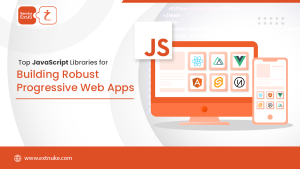As the world is becoming more tech-savvy, things around us are evolving too fast to keep up with the trends. This is very true for JavaScript frameworks. They have evolved rapidly, catering to diverse development needs. Its increased demand for better design and simplicity has caused more JavaScript frameworks to be developed, as well as continuous updating of JavaScript frameworks.
However, when it comes to choosing the right one, it is a critical decision that can significantly impact the success of a web development project.
ExtJS stands out as a robust and comprehensive framework, because of its powerful data management capabilities such as data binding, and at the same time, it has a beautiful set of UI components. However, to understand its position within the broader context it is crucial to learn about other frameworks.
Popular Frameworks: Beyond ExtJS
Considering ExtJS within JavaScript frameworks requires understanding its strengths and limitations. Because of the robust toolset and mature architecture of ExtJS, it is an excellent choice for enterprise-grade applications.
However, an effective evaluation requires consideration of other popular contenders such as React, Angular, and Vue.js. They are all known for their component-based approach and flexibility- often favored in searches for the “most popular JavaScript frameworks.“
Each framework has distinct advantages and disadvantages. For instance, React’s virtual DOM and component reusability facilitate efficient rendering, while the disadvantage is that it is usually insufficient for building complex apps without the use of other libraries.
Angular provides a complete solution with tools like Angular CLI for robust application structuring but learning Angular is more complex than the other three frameworks.
Vue.js, known for its simplicity and ease of integration, appeals to developers seeking agility. But will not be the optimal choice for large-scale projects due to its lighter ecosystem and fewer built-in functionalities.
ExtJS’s Niche in Enterprise Solutions
ExtJS excels in complex enterprise applications where out-of-the-box functionalities, extensive UI components, and robust data handling are paramount. Its strength lies in catering to projects requiring comprehensive tooling without the need for extensive third-party integrations.
However, it’s crucial to acknowledge that ExtJS might have a steeper learning curve compared to lighter-weight frameworks like Vue.js, and it might not be the optimal choice for smaller-scale projects due to its comprehensive nature.
Navigating the Framework Maze
Selecting the right JavaScript framework involves a careful evaluation of project needs, development goals, and the framework’s ecosystem. ExtJS shines in enterprise applications, offering a mature and comprehensive solution.
EXTNUKE’s ExtJS themes and components emerge as a pivotal enhancement. Our meticulously crafted themes and components, notably the “Catalog” theme, bolster applications with modern aesthetics and user-centric designs. Our vast JavaScript component library and JavaScript UI library significantly augment ExtJS’s visual appeal and user experience, contributing to its adaptability across diverse projects.
We stand out as a leading front-end framework, offering an extensive JavaScript component library and UI toolkit. Utilizing these resources can significantly enhance your application’s capabilities, guiding you toward a well-informed decision amidst the dynamic landscape of JavaScript frameworks.



Pingback: Evaluating ExtJS and Beyond: Considerations for...